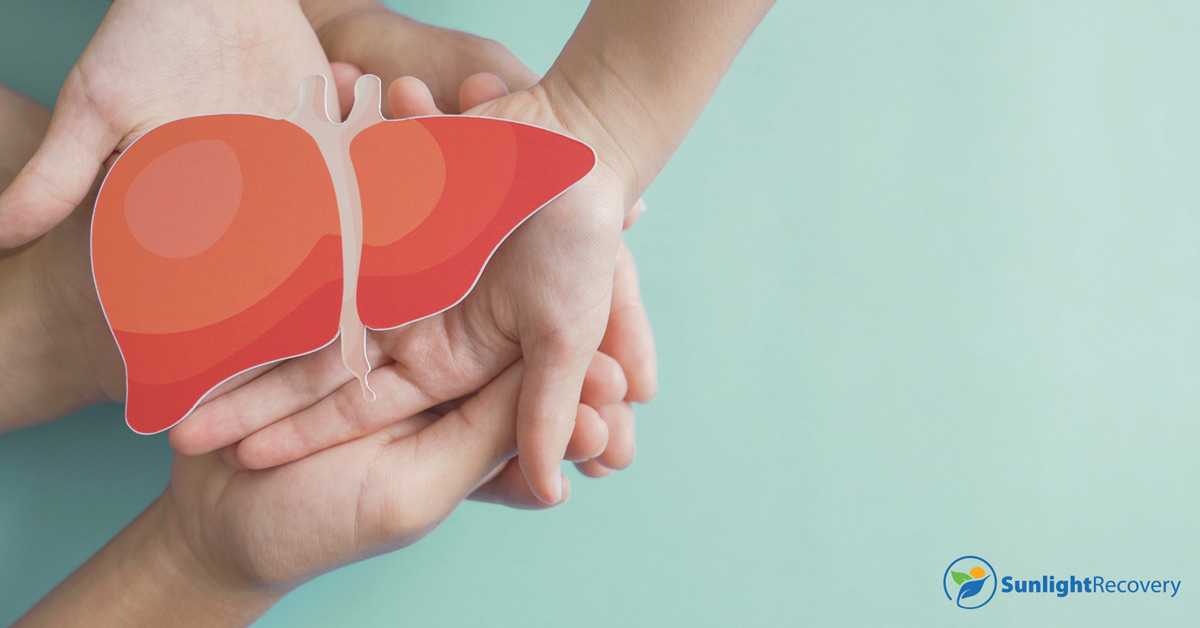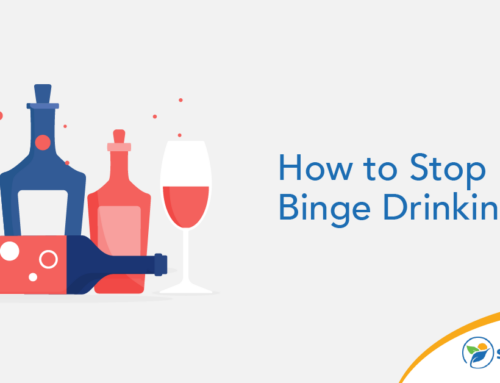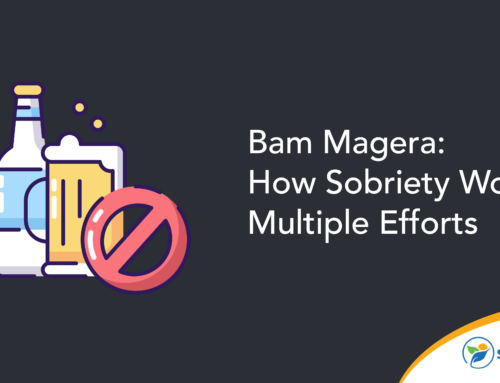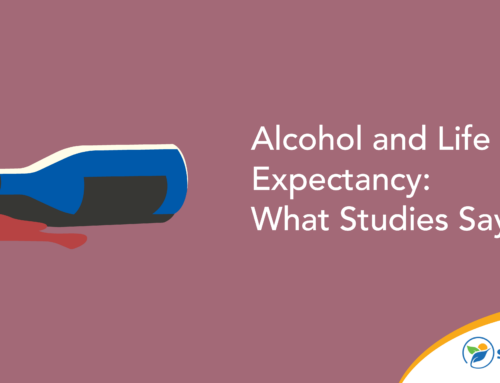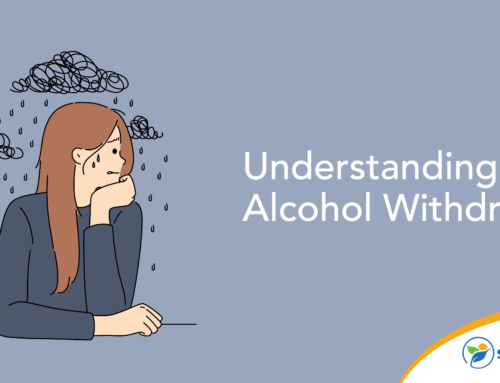Acetaldehyde is an organic chemical compound that can damage the membranes of cells in your body and sometimes cause the formation of scar tissue as well. How does acetaldehyde get into the body in the first place? When you drink alcohol, your body breaks it down into acetaldehyde. The chemical is eventually metabolized and excreted as acetic acid, but first it contributes to the symptoms of an acetaldehyde hangover.
Acetaldehyde and the Severity of Hangovers
What causes a hangover? Aptly named, an acetaldehyde hangover is caused by the chemical compound the body forms from ethanol. Acetaldehyde is a metabolite of alcohol and is 10-30 times more toxic to the body than alcohol itself. When the body metabolizes alcohol and creates acetaldehyde, the concentrated buildup of the compound can cause side effects before it’s expelled as acetic acid. While even small amounts of alcohol can have an effect on the body, higher concentrations of acetaldehyde can result in more unpleasant hangover symptoms.
Alcohol also affects the body’s immune system response, which can contribute to the symptoms of an acetaldehyde hangover. A 2003 study looked at the relationship between the level of cytokines (molecules that signal to the immune system) and the severity of a hangover. The conclusion was that consuming more alcohol (which creates acetaldehyde in the body) triggered the release of cytokines, something that usually occurs when the immune system is trying to fight off an infection. The inflammatory response created by alcohol consumption led to symptoms like:
- Nausea
- Headaches
- Fatigue
- Muscle aches
- Irritability
- Memory loss
All these symptoms that typically occur during an acetaldehyde hangover may be related to the release of cytokines.
Effects on the Body: Physical and Mental
An acetaldehyde hangover has both physical and mental effects on the body, leading to the symptoms commonly associated with how a person feels the morning after drinking. The short-term physical effects of acetaldehyde typically include:
- Headache
- Upset stomach/nausea
- Increased heart rate
Since the brain is affected by this toxic compound, there are also mental implications of an acetaldehyde hangover. Memory impairment and reduced cognitive function can both result from high concentrations of acetaldehyde in the body.
You may wonder, “Why does more alcohol help a hangover?” The truth is, there’s no merit to this myth. The notion that drinking more alcohol can relieve the symptoms of a hangover is incorrect; it may appear to help in the short term because your over-stimulated brain is able to relax again temporarily. However, in the long term, drinking more can make a hangover worse and can also increase your risk of developing alcohol dependency.
Although the effects of a hangover might seem minimal and short-lived, there are potential long-term consequences to be aware of. The CDC warns that consuming alcohol can increase a person’s risk of cancer because of how acetaldehyde affects the body’s cells. Acetaldehyde damages DNA, which can cause cell mutations that may increase a person’s risk of developing cancerous tumors.
Why Hangovers Affect Your Mood
Besides experiencing physical repercussions the next morning after drinking large quantities of alcohol, you might notice your mood is also affected. You may feel irritable, fatigued or anxious. This is due to what’s known as a dopamine hangover. On top of suffering an acetaldehyde hangover, your brain is experiencing “hangxiety.” This phenomenon occurs because the alcohol you consumed increased the amount of dopamine released by your body, which affects the balance of other neurotransmitters.
Acetaldehyde Hangover Recovery Strategies
A poll from Gallup suggests that around 60% of Americans drink alcohol regularly. While it’s okay to enjoy alcohol in moderation if someone is above the legal drinking age, many people engage in binge drinking and experience hangovers as a result. It’s important to note that even when managing the symptoms of a hangover to reduce discomfort, the physical and mental effects on your body are still occurring, even if you don’t notice them at the time. It’s always best to drink responsibly and have a plan for a safe ride home.
To minimize the impact of acetaldehyde and dopamine hangovers on your body, you can implement the following recovery strategies after a night of drinking.
Hydration
Hydration is a key aspect of hangover recovery because alcohol is a natural diuretic. This means it increases the need to urinate, so your body is excreting liquid waste more frequently than it normally would if you weren’t drinking alcohol. Consuming just 50 grams of alcohol in 250 milliliters of water (which is around four drinks) causes your body to eliminate anywhere from 600-1000 milliliters of urine over a period of a few hours.
To improve the symptoms of a hangover, drink water proactively (before the symptoms begin) and continue diligently hydrating your body the day after consuming alcohol.
Nutrition
Besides dehydration, drinking alcohol can cause an electrolyte imbalance in the body, worsening hangover symptoms. Consuming foods rich in natural sugars and nutrients can replenish your body and help you feel better. Try to eat foods containing magnesium, vitamin A, vitamin C, vitamin E and potassium after drinking.
Time
Excessive drinking can affect your body for days after the fact. Your hangover symptoms can last between 8 and 24 hours while your body works hard to clear the toxins (like acetaldehyde) from your system. So, even if you’re eating right and drinking lots of water, don’t expect to wake up feeling great after a night of binge drinking. It takes time for your body (especially your liver) to process the chemical compounds produced.
Rest
Since alcohol consumption can trigger your body’s immune response, getting plenty of rest is one of the best ways to manage symptoms of an acetaldehyde hangover. You may have difficulty sleeping while your body metabolizes alcohol, so if possible, spend the day after resting to allow your body and mind to rejuvenate.
Struggling With Alcohol Use?
If you’re struggling to control your alcohol intake, you may be living with alcohol use disorder, a condition affecting 10.6% of Americans aged 12 and older. There’s no need to grapple with the challenges of AUD alone; at Sunlight Recovery, we can help you develop a recovery plan that works for your lifestyle. With our medical detox, inpatient and outpatient addiction programs, our compassionate counselors can meet your needs. Contact us today for more information or to schedule an appointment.


